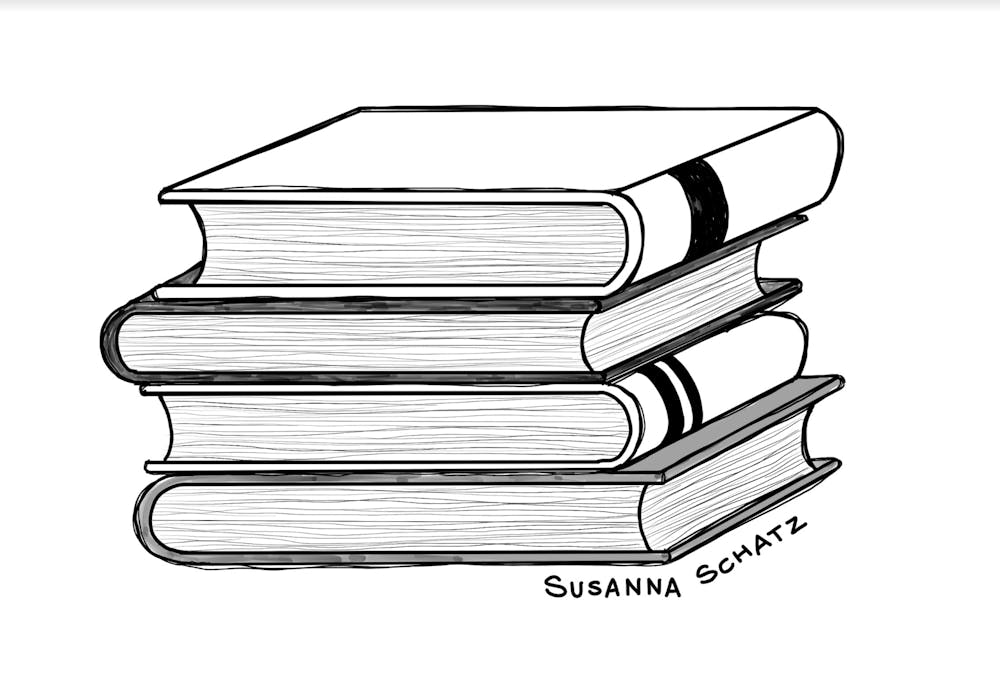If you struggle to find time to read for fun, this is the spot for you. Niche Reads recommends novels that relate to academic (or other) interests so you can explore a new book while still feeling productive. Check back each week for more cool books!
History majors often study the stories of entire civilizations or eras. Novels with such a wide scope certainly abound, but literature is also a great way to explore more personal or familial histories. The following books focus on understanding the past through individual narratives that study the ripples of history throughout ordinary lives.
“Moonglow” by Michael Chabon (2016)
Michael Chabon’s “Moonglow” may be a novel, or it may be a memoir. It’s kind of hard to keep track as the narrative unfolds, and Chabon seems to enjoy the ambiguity in the book’s veracity. The plot follows Chabon, or perhaps a fictional version of him, or maybe both, as he learns about his dying grandfather’s life. His grandfather, a gruff, unpredictable World War II veteran, also illuminates the lives of Chabon’s mother and grandmother, and Chabon must contend with revelations that fundamentally challenge his image of his family.
This book is an exploration of the nature of truth and the importance of it. It asks the questions, does it matter what really happened in the past, or is it more important to know what we experienced? Should we venture to open the box in the attic? At once a portrait of a family tortured by secrets and of an entire generation scarred by war, “Moonglow” is a thrilling, shocking and beautiful read. Its humanity and humor are refreshing, and Chabon’s gorgeous, light prose is always a joy to read.
You should read this book if you enjoy memoirs, if you are drawn to books with memorable characters or if you appreciate books with a witty voice.
“The Birds of Opulence” by Crystal Wilkinson (2016)
In Opulence, Ky., a small Black community, the women of the Goode-Browne family struggle with legacies of sexuality, reputation and madness. This sprawling, beautiful book follows generations of women and their quests to build lives with or without men among the echoes of their ancestors.
The strength of this book lies in its lush, poetic prose, which depicts in beautiful detail the fictional community of Opulence and the women at the center of the novel. The gender dynamics at play are heart-rending, and Wilkinson expertly exposes the cycles of violence — literal and figurative — that the Goode-Browne women face. While it spans multiple generations across many years, “The Birds of Opulence” is intimate and human, and its prose is not to be missed. Its explorations of family history, rooted in place, create an insightful view into the connections between past and present.
You should read this book if you’re drawn to poetic language, if you like family sagas or if you’re interested in novels that explore broader social issues.
“Slaughterhouse-Five” by Kurt Vonnegut (1969)
Of the books on this list, “Slaughterhouse-Five” is by far the most sprawling. It’s the story of a World War II prisoner of war, Billy Pilgrim, who gets abducted by aliens. Luckily for Billy, he is abducted by the Tralfamadorians, an alien race that experiences time entirely differently from how humans do. ToTralfamadorians, time is as easy to move through as space, although all outcomes are predetermined. Eventually, the aliens give Billy the ability to treat time as they do.
“Slaughterhouse-Five” interrogates the very concept of time and of history itself.. The novel explores what happens to a human with a non-human sense of time and the power to escape or relive any moment he pleases. Vonnegut, as always, is darkly funny and thought-provoking. “Slaughterhouse-Five” invites readers to question permanence and fate, and to examine the concept of detachment. It is a disturbing but enjoyable read, and those who have not cracked open this classic should definitely consider giving it a try.
You should read this book if you like science fiction elements, if you are interested in a high-concept story or if you appreciate humor in unlikely places.




